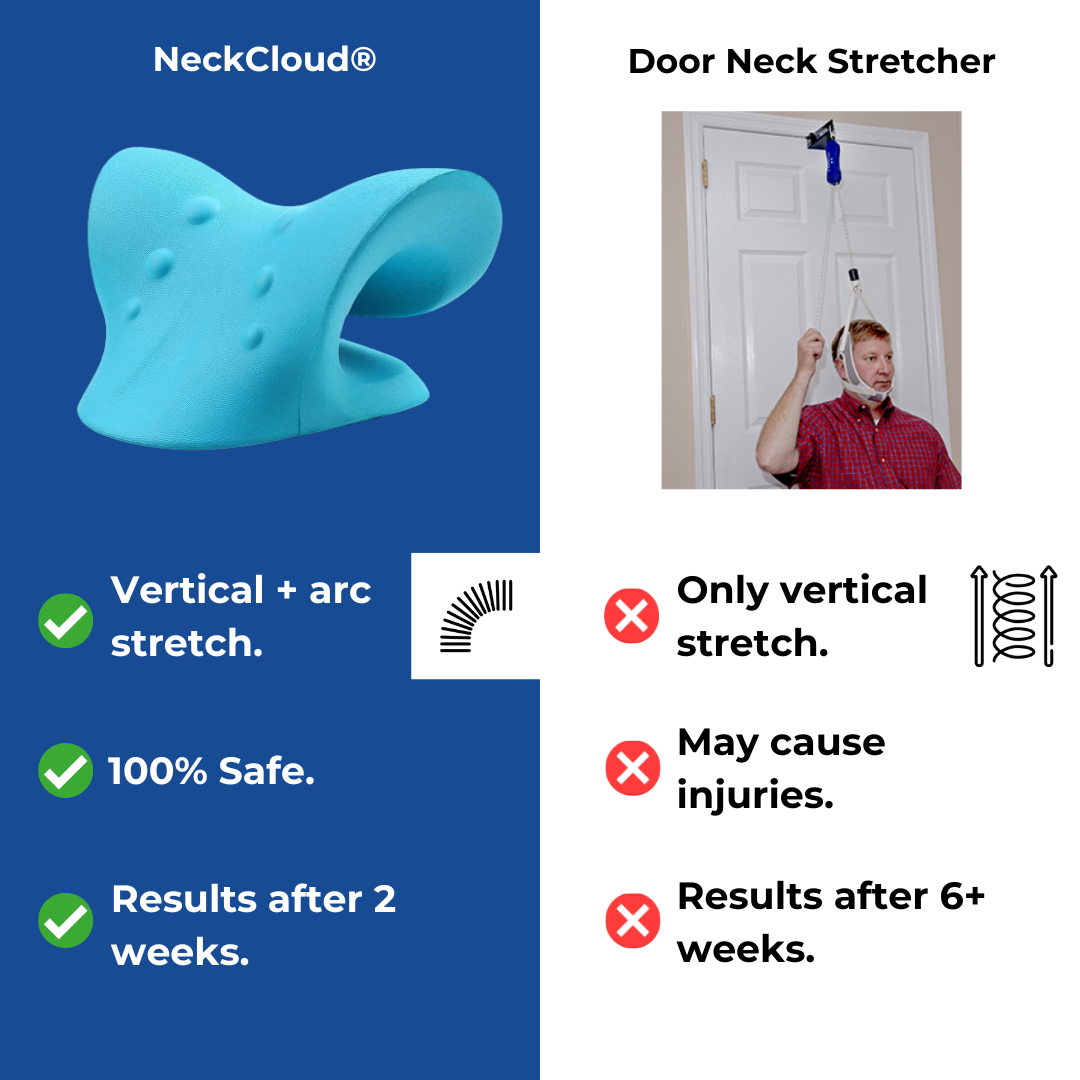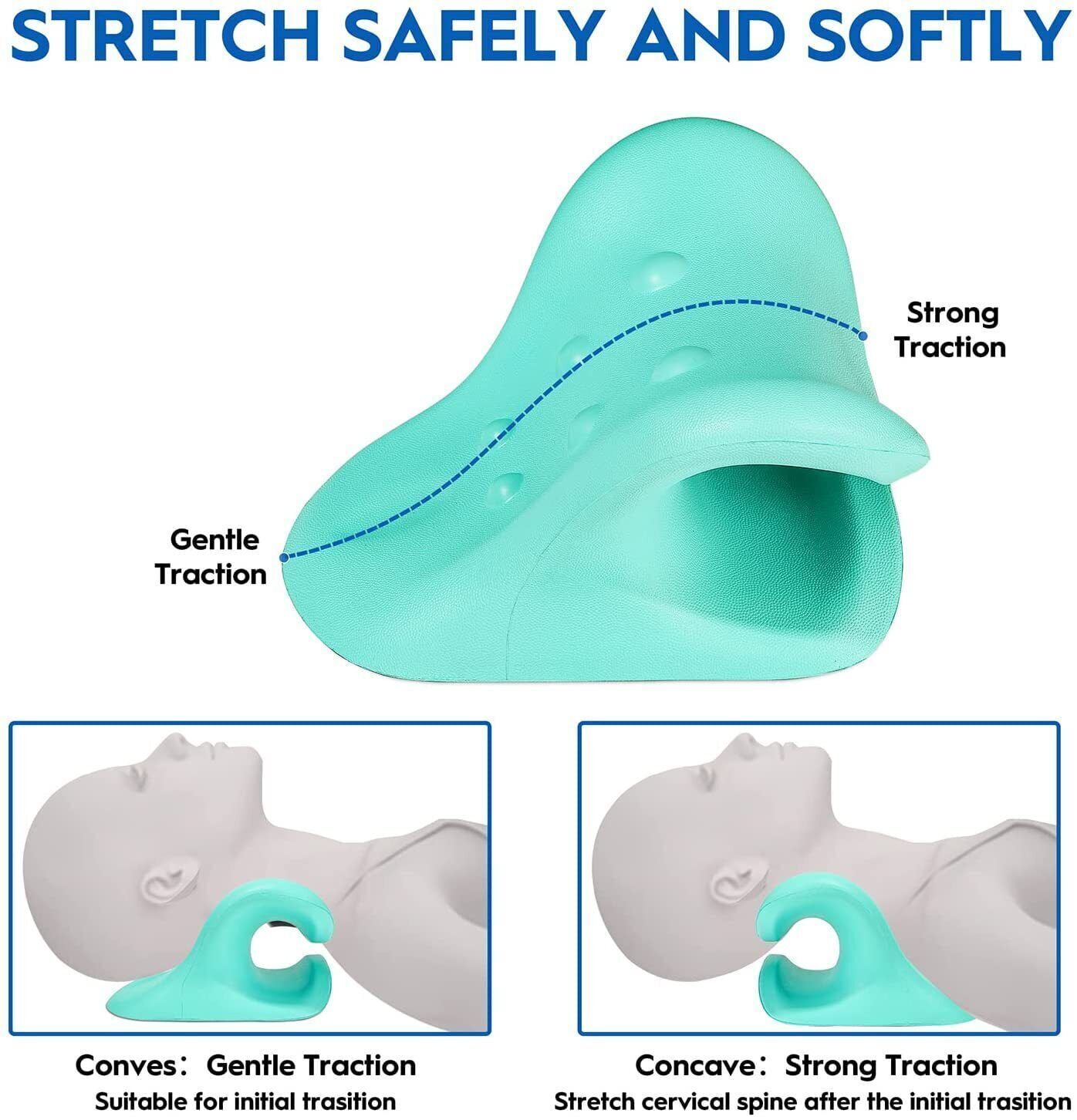Why the Neck Cloud is a Must-Have for Alleviating Neck Tension
Why the Neck Cloud is a Must-Have for Alleviating Neck Tension
Blog Article
The Impact of Stress on Neck Discomfort: Strategies for Reducing Stress and Pain
In today's busy globe, it's obvious that anxiety has actually become a common variable in the start and exacerbation of neck pain. The detailed connection between stress and muscle stress frequently leaves individuals seeking remedy for the discomfort that takes place. By discovering targeted approaches targeted at minimizing tension and advertising relaxation, one can start to attend to the origin triggers of neck discomfort and job towards a much more well balanced state of health. Join us on a trip to unwind the impact of anxiety on neck pain and discover effective ways to minimize pain and enhance total lifestyle.
Recognizing Stress-Related Neck Discomfort
Neck discomfort is a typical complaint that can frequently be credited to anxiety. Stress-related neck pain can manifest as tension, tightness, or pain in the neck and shoulder area. The link in between anxiety and neck discomfort exists in the body's physical reaction to anxiety, which can result in muscular tissue stress and tightness in the neck muscular tissues. Chronic stress and anxiety can result in relentless neck pain and intensify status quo like cervical spondylosis or muscular tissue stress.

Identifying Common Tension Areas
Regularly experienced by individuals under anxiety, tension areas in the body can give important understandings right into the physical symptoms of emotional strain. One typical stress location is the neck, where stress usually manifests physically. Stress frustrations, stiff neck muscle mass, and limited variety of activity prevail signs of stress-related neck stress. The shoulders are an additional common area where stress gathers. Stress can trigger the muscles in the shoulders to tighten, causing pain and discomfort. In addition, the upper back is prone to tension accumulation, especially in individuals who experience chronic anxiety. Poor pose and long term resting can aggravate tension in this area. The jaw is also a common location for stress-related tension, as numerous people clinch their jaw or grind their teeth when worried. Knowing these typical tension areas can assist individuals acknowledge the physical indications of tension and take steps to address them before they escalate right into persistent discomfort or pain.
Implementing Leisure Methods
Relaxation methods are useful devices for reducing neck pain triggered by stress and anxiety. Additionally, activities like yoga exercise and tai chi include both physical activity and relaxation, making them effective practices for minimizing stress and anxiety and neck discomfort. By incorporating these relaxation methods into your everyday regimen, you can aid handle stress and anxiety levels, lower tension in the neck, and reduce pain linked with stress-induced neck pain.
Including Self-Care Practices
Incorporating self-care techniques is essential for maintaining overall well-being and managing stress-related neck discomfort efficiently. Engaging in routine physical activity, such as gentle stretching exercises learn the facts here now or yoga, can get redirected here help ease stress in the neck and shoulders. Practicing great posture throughout the day and taking constant breaks from prolonged sitting or screen time can likewise stop pressure on the neck muscles.
Additionally, focusing on ample rest and developing a constant sleep routine can contribute considerably to minimizing stress and anxiety degrees and advertising leisure. Creating a soothing going to bed routine, such as checking out a publication or taking a cozy bathroom, can assist prepare the mind and body for peaceful rest. In addition, preserving a well balanced diet regimen rich in nutrients and remaining hydrated can sustain overall wellness and lower inflammation that might worsen neck pain.
Incorporating mindfulness techniques, such as deep breathing exercises or reflection, can assist manage stress and promote relaxation. Taking time for oneself, engaging in hobbies, and establishing borders to secure personal time are additionally crucial aspects of self-care that can add to decreasing stress and anxiety and easing neck pain.
Looking For Professional Aid
How can people efficiently resolve persistent neck discomfort that is impacting their everyday life and well-being? Seeking professional aid can be an essential step in managing and minimizing neck pain. Consulting with health care experts such as chiropractics physician, physical specialists, or orthopedic experts can give useful insights and customized treatment plans. These specialists can conduct thorough analyses to diagnose the underlying reasons for neck pain and suggest proper treatments.
Chiropractics physician focus on back manipulation methods to boost alignment and reduce tension in the neck area. Physiotherapists supply targeted stretches and exercises to reinforce muscle mass, improve versatility, and improve total neck feature. Orthopedic specialists can provide advanced clinical treatments such as shots or medical alternatives for severe instances of neck pain.
Conclusion

Stress-related neck pain can manifest as stress, rigidity, or pain in the neck and shoulder location. The connection between stress and anxiety and neck pain lies in the body's physiological response to stress, which can result in muscle stress and tightness in the neck muscle mass. Stress headaches, rigid neck muscular go to this web-site tissues, and limited range of movement are usual signs of stress-related neck tension. By incorporating these relaxation strategies right into your everyday routine, you can help handle stress and anxiety degrees, reduce tension in the neck, and ease pain associated with stress-induced neck pain.

Report this page